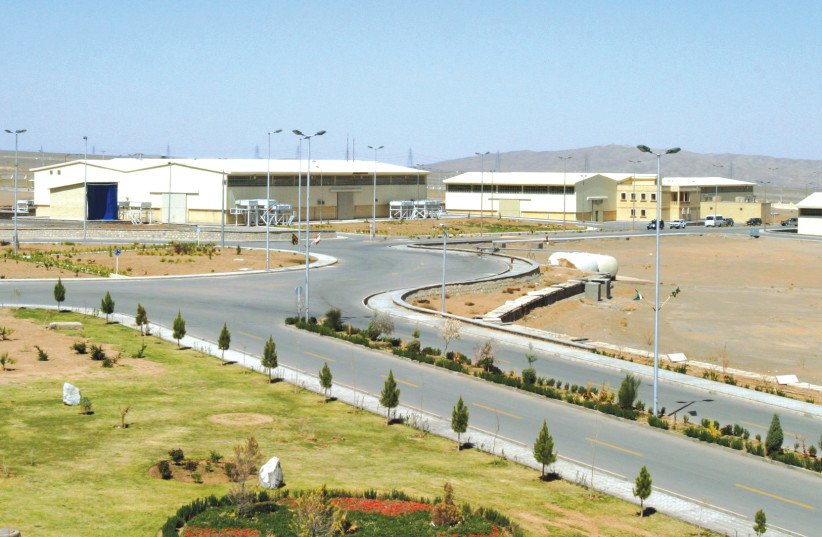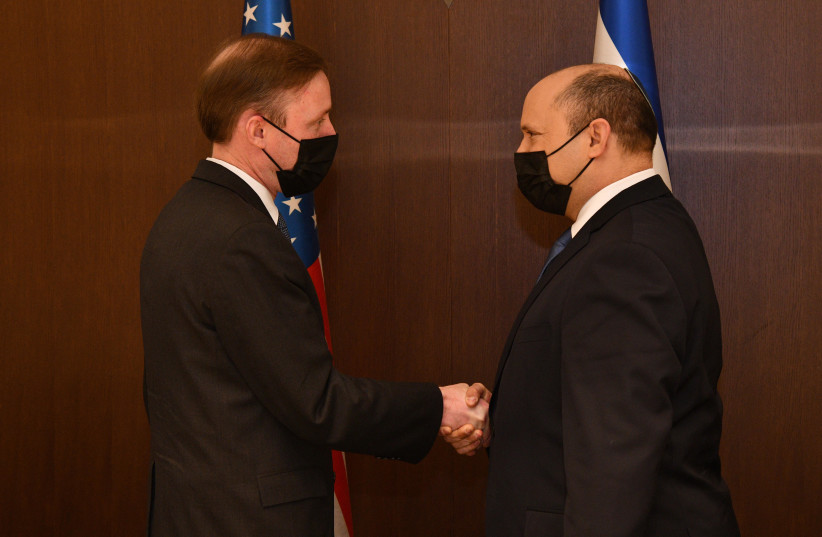There is a sense in Jerusalem that if Russia invades Ukraine, it could sharply change how the US deals with Iran.
Published: JANUARY 6, 2022 21:20

The US wants to use “snapback sanctions” to deter Iran from enriching weapons-grade uranium – a mechanism that was meant to be used in response to any violation of the 2015 nuclear deal.
US National Security Adviser Jake Sullivan told Israelis that he saw snapback sanctions as a possible way to stop Iran from enriching uranium to 90% purity, an Israeli diplomatic source said, confirming a report in Walla News.
Snapback was a UN Security Council resolution passed in tandem with the Joint Comprehensive Plan of Action nuclear deal with Iran, which stated that any party to the deal can trigger UN Security Council sanctions – which are binding on all member states – if Tehran violates the agreement in any way. That agreement limited Iran’s uranium enrichment to 5%, but the Islamic Republic has enriched it to 60% in the past year, among other JCPOA violations.
cnxps.cmd.push(function () { cnxps({ playerId: ’36af7c51-0caf-4741-9824-2c941fc6c17b’ }).render(‘4c4d856e0e6f4e3d808bbc1715e132f6’); });
The US under former president Donald Trump left the Iran deal in 2018 but asked the UNSC to snap back sanctions in 2020 due to Iranian violations. The other members of the UNSC voted that the US did not have the authority to do so, because it had abandoned the JCPOA.
Sullivan’s remarks to Israeli officials come as world powers continue negotiations for Iran and the US to return to the JCPOA, and as Israel warns allies that Iran is taking steps towards enriching weapons-grade uranium.

Israeli officials told Sullivan that they think that parties to the JCPOA should threaten snapback sanctions if the Vienna talks do not come to fruition.
Threatening snapback only in the case of 90% enrichment is a downgrade in what the current administration in Washington had previously said. Last year, snapback was mentioned as a way to encourage Iran to agree to a “longer and stronger” version of the JCPOA and then as something that may happen if the negotiations with Iran to return to the original JCPOA fail.
Israel also brought up snapback sanctions to the E3 – France, Germany and the UK – as a way to pressure Iran, but France and Germany were not open to the possibility.
As the Iran nuclear talks in Vienna continue, American officials relayed “a sense that this can’t go on forever” and that they would have to soon make a decision as to whether they see the Iranians as taking the negotiations seriously, the source in Jerusalem said.
State Department Spokesperson Ned Price said on Tuesday that “what is clear is that if we do not soon reach an understanding on a mutual return to compliance, Iran’s accelerating nuclear steps will increasingly diminish the nonproliferation benefits of the JCPOA.”
At the same time, US and Iranian officials said that there was modest progress in the negotiations this week.
US Secretary of State Antony Blinken initiated a call with Foreign Minister Yair Lapid on Wednesday night.
They spoke “about regional and global challenges, and the importance of putting pressure on Iran to stop its race to a nuclear weapon,” Lapid tweeted. “Secretary Blinken reiterated the U.S. administration’s commitment to Israel’s security.”
The State Department readout mentioned that they spoke about “the risks of further Russian aggression against Ukraine,” as well.
A diplomatic source said the US was very serious about discussing tensions between Russia and Ukraine while recognizing the complexity for Israel, which has close ties with Russia.
There is a sense in Jerusalem that if Russia invades Ukraine, it could sharply change how the US deals with Iran, the source said. Not only would American attention be diverted, but Washington could hastily seek an interim deal, which Israel strongly opposes.
Content retrieved from: https://www.jpost.com/israel-news/article-691807.